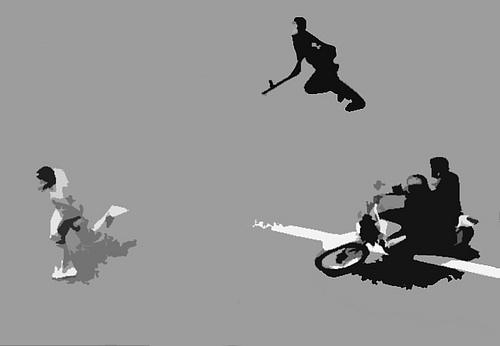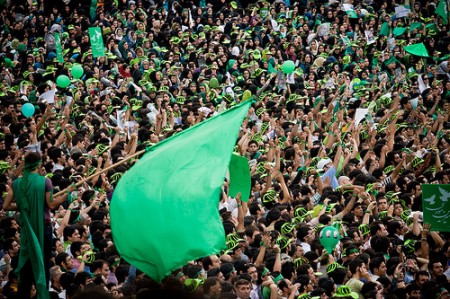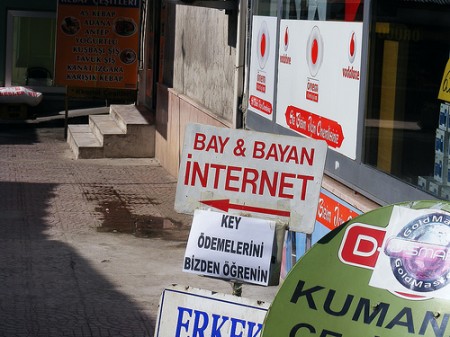
In the wake of a vehemently challenged election in Iran last Friday, the blogosphere and mainstream media outlets are on fire today.
With talk of a totally rigged election (and we’re not talking some lost ballots here), complete with rigged software counting the ‘votes’ of children and dead people, locals, bloggers and journalists are all weighing in on what happened in Iran and where we might go from here. The wildest, and to many the only acceptable, scenario involves the re-scheduling of the entire election due to massive fraud. But how likely is the hardline leadership in Iran to admit its mistake (or rather its crime) and allow for a rerun of the whole process? What happens if the results are allowed to stand? Are we witnessing a hardline ‘soft coup’, as our Tehran correspondent argued in an article published on 11 June, or is there still enough fire in the opposition movement to put the hardline plans under such pressure that they will have to cave in, one way or the other?
Here are some of the best sources for information and opinions on the topic:
- Our Tehran correspondent, Kamal Nazer Yasin, has written an update, titled Days of Rage for the ISN, detailing the aftermath and likely outcomes of the current stand-off between Ahmadinejad and the opposition forces. The article gives unparalleled insight into the mood, news and events in Tehran as they unfold on the ground.
- A blogger on Global Voices has posted Youtube videos of the protests as they unfolded last Friday and Saturday. This gives more insight into how the protests proceeded on the streets of Tehran. The chanting is loud and passionate and the crowds are massive.
- Michael Tomasky, head of the Guardian’s America bureau has posted an impassioned blog on the election, detailing reasons for why he believes that the elections were rigged. In the Analysis section, the Guardian has also provided some more insights, showing just how muddy the statistics are in terms of vote counts.
- Ken Ballen and Patrick Doherty of the Washington Post urge caution and remind us that opinion polls three weeks before the election gave a 2 to 1 margin for Ahmadinejad, indicating that the results could be correct.
- The Meedan site provides more information on the debate over the election results- both a case for and a case against, as well as supporting sources and links.
- Some striking pictures, courtesy of the Foreign Policy Passport blog, from Tehran on Monday. The opposition forces, it seems, are still alive and well (and growing).
- Alan Taylor of the Boston Globe has put together a fascinating slideshow on the protests. Please be warned that the last three images contain graphic content.
What do you think?




